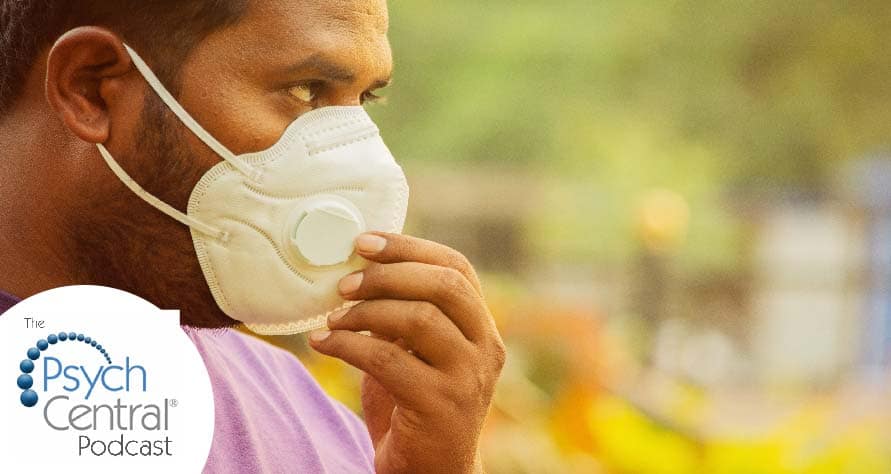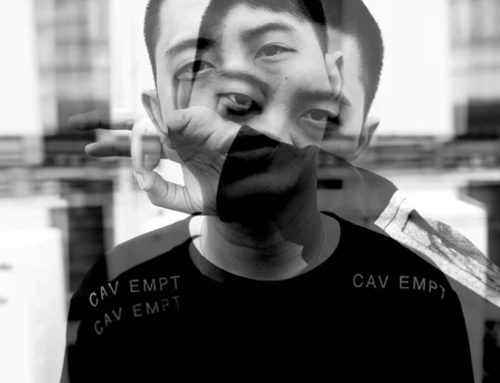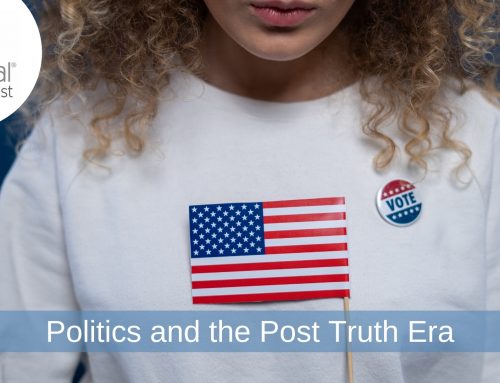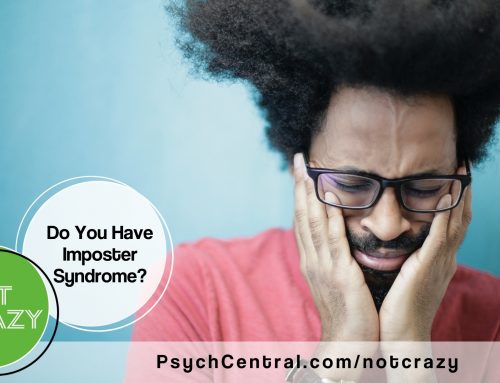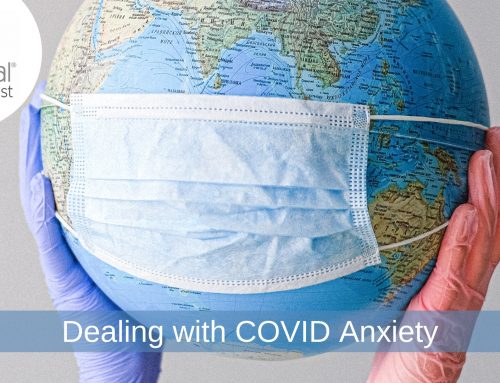Does the new coronavirus have you googling disease updates at 4am? How concerned should you be? And why do we get so anxious when a new illness pops on the radar, even when other diseases are more likely? In today’s podcast, Dr. Grohol helps separate the truth from the hype. Click on the player below to listen now!
SUBSCRIBE & REVIEW
Guest information for ‘Dr. John- Worried About Coronavirus’ Podcast Episode

John M. Grohol, Psy.D. is a pioneer in online mental health and psychology. Recognizing the educational and social potential of the Internet in 1995, Dr. Grohol has transformed the way people could access mental health and psychology resources online. Pre-dating the National Institute for Mental Health and mental health advocacy organizations, Dr. Grohol was the first to publish the diagnostic criteria for common mental disorders, such as depression, bipolar disorder and schizophrenia. His leadership has helped to break down the barriers of stigma often associated with mental health concerns, bringing trusted resources and support communities to the Internet.
He has worked tirelessly as a patient advocate to improve the quality of information available for mental health patients, highlighting quality mental health resources, and building safe, private support communities and social networks in numerous health topics.
Computer Generated Transcript for ‘Dr. John- Worried About Coronavirus’ Episode
Editor’s Note: Please be mindful that this transcript has been computer generated and therefore may contain inaccuracies and grammar errors. Thank you.
Announcer: You’re listening to the Psych Central Podcast, where guest experts in the field of psychology and mental health share thought-provoking information using plain, everyday language. Here’s your host, Gabe Howard.
Gabe Howard: Hello, everyone, and welcome to this week’s episode of The Psych Central Podcast. Calling into the show today, we have Dr. John Grohol, founder and editor in chief of PsychCentral.com. Dr. Grohol, welcome to the show.
Dr. John Grohol: Always a pleasure to be with you, Gabe.
Gabe Howard: I’m glad that you’re here because you always have cutting edge information, you know, stuff that makes the news. It’s very timely and relevant. And there’s nothing more timely and relevant right now than the coronavirus and the anxiety that it’s causing people, really all over the world, but especially in America. So I’m excited to talk to you about that, John.
Dr. John Grohol: Yeah, I’m excited to talk to you as well and our audience about this outbreak. Because I know it’s been hyped up in the media a little bit and think a lot of people have a fair amount of anxiety and are a little scared about what this virus means.
Gabe Howard: I imagine a lot of people are familiar with coronavirus, but can you give us sort of the Reader’s Digest version of what exactly the coronavirus is?
Dr. John Grohol: Sure, it’s a type of virus that spreads from animals to humans via transmission that is typically airborne or through something like a sneeze or a cough once it’s amongst humans. What makes it troublesome is that there is no vaccine for it. And the treatment is kind of like the treatment for the flu in the sense that we don’t really have a specific targeted treatment to help people with the virus itself at this time. Doesn’t mean that scientists aren’t working on possible vaccine or treatment for coronavirus, for this particular strain of it. But it does mean that people are a little afraid because it doesn’t have an obvious immediate treatment or a vaccine.
Gabe Howard: Those are all really good reasons to be concerned, and I can see why those reasons alone can cause somebody’s anxiety. But if you look at the news cycle, entire cities in China have been quarantined. There’s travel restrictions throughout the world. And of course, you take into the fact that it’s an unknown health crisis and of course, words like crisis, epidemic. And I think all of this is contributing to why people are reacting in such a way. Do you think that’s true?
Dr. John Grohol: Yes, I think it is true, but we also have to take a step back and understand why these events are taking place. Why are entire cities being quarantined? And that’s for a very good public health reason. It’s to keep people who may have already spread the virus unknowingly to other people all in the same geographic location. So they don’t spread it any further than what it has already gone. So public health officials take precautions, such as quarantining an entire city to stop the spread of a virus, and especially important when the virus is easily transmittable as it appears that this strain of coronavirus is. So the fact that public health officials in China and other places in the world are quarantining entire cities is actually a very good thing. It helps reduce and prevent the spread of the virus to a greater magnitude than otherwise would be present. So it sounds really scary. I get that. You don’t really hear about people quarantining a whole city in the United States or in some country in Europe, Western Europe. But from a public health perspective, it’s actually a very good thing and it’s a very proactive step to take. Doesn’t mean that the people are cut off from all communication with the outside world. It’s not like a scary Hollywood movie type of quarantine. It actually just means that travel is severely restricted in and out of that city. Of course, this competes with China’s existing crackdown on Internet communications. So, you know, you put the two together and you get a situation where we’re not getting as much information as we would like about things like how many people are actually infected and whatnot in China. But we’re getting, public health officials are getting sufficient information in which to continue work on treatment and vaccines and understanding the spread of the virus.
Gabe Howard: Now, Dr. Grohol, you have, I don’t want to call it a four step technique to cope with fear and manage the coronavirus anxiety, but you do have four pieces of information for us, and it starts with not inflating the actual risk.
Dr. John Grohol: Yeah, let’s step back for a second and acknowledge, look, being scared, being anxious about what is going on over in China and slowly spreading in other parts of the world is completely a natural response to what is happening. I don’t want to minimize the fact that people have anxiety and do have fear about what the coronavirus is and its spread. But I also would like to try and put that into some sort of context. I feel like anxiety and fear can easily run away with us when we don’t look at the facts on the ground, when we don’t answer the irrational with some rational responses about what we know today. Doesn’t mean that the situation couldn’t change for the worse, or for the better, in the future. It just means that we should base our responses and our fears as much as possible on reality. I think it just leads us to have a happier, healthier life if we try and do that as often as possible in any part of our lives, not just talking about the coronavirus, so. So, indeed, the first thing is, we don’t want to inflate the risk. We don’t want to overemphasize the impact of what the coronavirus has done so far and what it looks like it’s likely to do.
Gabe Howard: And John, you have some stats for us when it comes to the coronavirus vs. the ordinary flu, and obviously we’re not panicked about the ordinary flu. Can you give us those stats to kind of put it in a little further context?
Dr. John Grohol: You bet. We have to keep in mind that things that were ordinary, like the seasonal flu that comes around every year, we take kind of for granted and we forget how much of an impact it makes in people’s lives. So, for instance, the seasonal flu is responsible so far, just this season, fifteen million people have been infected in the United States. Of those 15 million people, one hundred and forty thousand people have had to be hospitalized because of their flu infection. And it’s resulted in an astounding over eight thousand deaths. Eight thousand people have died from the seasonal flu in the United States for this season. And it doesn’t even make the headlines of any kind of news report, because this is ordinary. This is what happens every season. We have millions of infections every year of the seasonal flu. And most of those deaths come about not because the flu is so horrible, although if you ever get the flu, you know, it can be pretty, pretty bad. But because of immuno-compromised individuals, people who already have an immune system that isn’t functioning properly because of an existing illness such as cancer or any number of other reasons. So most of the deaths are occurring in people whose immune system is already not well functioning. And I just want to say one last thing about understanding the risk and not inflating it. Compare the seasonal flu with what we know about this strain of coronavirus today, just under seventeen thousand five hundred infections and three hundred and sixty two deaths as of today. It appears that the death rate is around 2 percent. Now, that’s much higher than the death rate of the seasonal flu, don’t get me wrong. But it’s also not a surprising or overly concerning number. I mean, something to be aware of. But a 2 percent death rate is something that most people can understand is not going to come out and just attack you and cause your death if you get even the coronavirus, so.
Gabe Howard: We’ll be right back after these messages.
Sponsor Message: Hey folks, Gabe here. I host another podcast for Psych Central. It’s called Not Crazy. He hosts Not Crazy with me, Jackie Zimmerman, and it is all about navigating our lives with mental illness and mental health concerns. Listen now at Psych Central.com/NotCrazy or on your favorite podcast player.
Sponsor Message: This episode is sponsored by BetterHelp.com. Secure, convenient, and affordable online counseling. Our counselors are licensed, accredited professionals. Anything you share is confidential. Schedule secure video or phone sessions, plus chat and text with your therapist whenever you feel it’s needed. A month of online therapy often costs less than a single traditional face to face session. Go to BetterHelp.com/PsychCentral.and experience seven days of free therapy to see if online counseling is right for you. BetterHelp.com/PsychCentral.
Gabe Howard: We’re back discussing coronavirus anxiety with Dr. John Grohol. John, step two for managing the anxiety caused by the coronavirus is to take normal, healthy precautions.
Dr. John Grohol: Absolutely, this coronavirus strain is spread in the same way that seasonal flu is spread, apparently, and that just means that it appears to be spread through direct contact, skin to skin, touching people’s hands, touching people’s faces or whatnot, and through things like cough or sneeze. So the normal, everyday precautions that you would take in any kind of cold season, flu season, are what you would take for the coronavirus. You don’t need to do anything more than what you should already be doing. And one of those main things that everyone should be doing and that we simply don’t probably do enough of is to regularly wash our hands throughout the day. Especially if you go out of the house, you go outside of your workplace, you go grab a bite to eat, you’re touching door handles. You’re touching all sorts of other things that people have touched. And I can see where it’s easy to start feeling a little paranoid about, hey, you know, a thousand people have touched this door handle, and I’ve just touched it. And maybe I have coronavirus. But the easiest thing you can do is to wash your hands after that. So when you go out in the world and you come back home, wash your hands. Washing your hands correctly, too. So many people are just running their hands under a faucet for 10 seconds and maybe not even with soap. That’s not washing your hands. That’s just getting your hands wet. Getting your hands wet doesn’t protect them from germs. Washing them, singing or saying, quietly to yourself and inside your head, the ABC song, A B C D E F G, and going through that whole song, that’s about how long it should take for you to wash your hands thoroughly.
Dr. John Grohol: Use soap, lather up with warm to hot water, doesn’t have to be scalding hot like a lot of people think. Warm water works perfectly fine. The main thing is to try and be thorough about it. And just to try and get into the habit of doing it more regularly. Some people, they think, I take a shower once a day, that’s good enough. It may be, but if you really want to just be a little bit healthier and protect yourself against seasonal flu and something like the strain of the coronavirus, getting more consistent with hand-washing would be a good step. The other kind of thing I would also emphasize under taking normal healthy precautions is just doing the kinds of things that we should be doing anyway, getting a good night’s sleep, eating a mostly healthy diet as much as possible, a regular exercise. Basically, you’re looking to keep your immune system in shape and functioning at 100 percent rather than 50 percent or 70 percent. It’s the immune system that is your body’s best protection against seasonal flu, against coronavirus. And if you’re healthy in general, your body is going to have a much easier time fighting off these infections than when your body is already compromised, your immune system is already compromised.
Gabe Howard: And in fairness, this is something that we should be doing all year round. I know one of the things that you wrote in your article was engaging in regular exercise even in the winter. I took a pause for that because I thought, do people believe that you don’t need to take care of your body and your health because it’s cold outside?
Dr. John Grohol: I think what happens is that if people have a mostly outdoor routine for their exercise and then the winter comes, they don’t always necessarily have an automatic indoor routine for the winter months, and especially for the people who don’t go to the gym. For people who don’t maybe subscribe to a normal sort of exercise routine on a daily or weekly basis, which is probably most Americans. So in the winter, I think it’s not uncommon for people to sort of take it easy, get a little lazy in the exercise area. And I think their health in general probably suffers a little bit because of that. And so it’s just a good reminder that even in the winter months, you should be engaging in that kind of regular exercise that is recommended for everyone.
Gabe Howard: John, thank you so much. Now, your third coping mechanism for anxiety caused by the coronavirus is to avoid the overconsumption of media. That’s very interesting to me because it sort of sounds like you’re saying, hey, ignore that this is happening, but that’s not what you’re saying. But I think that sometimes that’s what people hear when you and other experts say, you know, look, turn off the TV. Pay attention to something else. Can you talk about that for a few?
Dr. John Grohol: Yeah, sure thing. I think we live in a time right now where consumption of media, consumption of what is going on in the world and what is vying for our attention, has never been higher. And that people are pushing out updates and alerts and new articles about things on such a constant basis that we definitely get fatigue from all the alerts and all of the information. And it’s easy to feel overwhelmed by it all. I haven’t met a person who hasn’t experienced that at least once with their social media consumption or with just even everyday news consumption. So we have to keep in mind the scientists are working super hard overtime, long nights. There are people who have dedicated their entire lives to understanding disease outbreaks like this, and we have to trust that they’re doing their best to get the work done, to get the job done. And that’s going to take time. Science is never quick. It doesn’t provide instant answers. And at this point, with the quarantines in place and with the travel restrictions in place from other countries, I feel like public health officials have probably done pretty much all that they can do to try and keep this outbreak as small as possible. And whether it’s going to grow into hundreds of thousands or even millions, only time will tell. And there’s nothing anyone can do about it, quite frankly. So getting, you know, hour-by-hour updates or even daily updates about what’s the spread, where are the numbers today? Unless you’re a scientist working in this field, it’s probably overkill for most ordinary people. I would just suggest kind of dialing it back a little bit in terms of your consumption of this particular news story, because it’s happening. It’s something that you should keep updated on, but not on an hourly or even daily basis. I think once a week for most people would be sufficient.
Gabe Howard: Now, John, if you are somebody that wants the daily information, for whatever reason, I know there’s something to be said about where you get this information. What advice do you have for people on where to get timely, accurate information without some of the anxiety provoking elements of some traditional news stories and news outlets?
Dr. John Grohol: So one great resource for learning more and sort of keeping up to date on the coronavirus is the U.S. Centers for Disease Control and Prevention, the CDC, a trusted U.S. government resource that has the latest information updates about what the spread of the virus is and what we know about it.
Gabe Howard: John, that’s excellent, thank you very much. Now, your fourth coping tip is actually a lot of coping tips all wrapped into one. Can you talk about that for a moment?
Dr. John Grohol: I think one of the things we sometimes forget is that we’ve already equipped ourselves with some abilities and skill sets from past experiences. So, every time we go through something in our lives, we learn something from it if we take a few minutes to look at it and analyze and understand what it was that event was trying to teach us. So, we all have a set of coping skills, whether we realize it or not. And when you’re under increased stress or anxiety or you’re fearful of the unknown, those are perfect times to pull out those past coping skills and to put them into use for the current situation. And, you know, each individual’s coping skill set is going to be different. Not everybody likes to exercise. Not everybody likes reaching out to a trusted friend or family member to talk through their anxiety. So, you have to use and know what the coping skills that work for you are. And now’s the time to use them. It could be a mindfulness or meditation technique. It’s basically anything that you’ve used in the past that seems to have worked for you, that’s helped you deal with a stressful time in your life. All those kinds of skills you can put into use for your anxiety, for your fear about this coronavirus, and trust that they’re probably going to work again in this situation. That’s why you turn to them in the first place. So, use your past coping skills.
Gabe Howard: John, thank you so much for helping us through this and giving us great information. Do you have any other takeaways for our listeners before we close?
Dr. John Grohol: Yeah, I would refer people to the blog entry that I wrote about this topic. It has additional links and information to how you can keep yourself up to date with unbiased on-the-ground information from the World Health Organization, from the CDC. And if you’re really into data and numbers, there’s even a great visualization graphic from Johns Hopkins that kind of explains in a very visual presentation exactly where the majority of this outbreak is occurring. Not surprisingly, it’s all in China. And as it grows, if it grows, you can kind of keep track of it. The main thing is not to blow this out of proportion. Keep things in perspective that, as of today, as far as we know, this outbreak is not resulting in the kind of sheer number of deaths that even the seasonal flu has. And hopefully that will, that kind of trajectory will continue. We can only hope. But in the meantime, there’s no reason to sort of be overly concerned or to let our fears get the better of us and take us on a roller coaster ride of anxiety.
Gabe Howard: And of course, it’s always best to wash your hands with soap and warm water while singing the alphabet song.
Dr. John Grohol: Yes. I cannot emphasize that enough. If more people did that, they would probably get less colds and flus in the first place. And public health officials just love to remind people to do that. And there’s a very good reason for it because it works.
Gabe Howard: Dr. Grohol, thank you so much for being with us.
Dr. John Grohol: My pleasure. Anytime, Gabe.
Gabe Howard: And thank you to our listeners as well. Remember, wherever you downloaded this podcast, we need you to rank, review and subscribe. We have a private Facebook group that you can share ideas and get the latest show updates. Just head over to PsychCentral.com/FBShow. And finally, you can get one week of free, convenient, affordable, private online counselling anytime, anywhere, simply by visiting BetterHelp.com/PsychCentral. We’ll see everyone next week.
Announcer: You’ve been listening to The Psych Central Podcast. Want your audience to be wowed at your next event? Feature an appearance and LIVE RECORDING of the Psych Central Podcast right from your stage! For more details, or to book an event, please email us at show@psychcentral.com. Previous episodes can be found at PsychCentral.com/Show or on your favorite podcast player. Psych Central is the internet’s oldest and largest independent mental health website run by mental health professionals. Overseen by Dr. John Grohol, Psych Central offers trusted resources and quizzes to help answer your questions about mental health, personality, psychotherapy, and more. Please visit us today at PsychCentral.com. To learn more about our host, Gabe Howard, please visit his website at gabehoward.com. Thank you for listening and please share with your friends, family, and followers.
This article originally appeared on Psych Central as Podcast: Managing Coronavirus Outbreak Anxiety.



